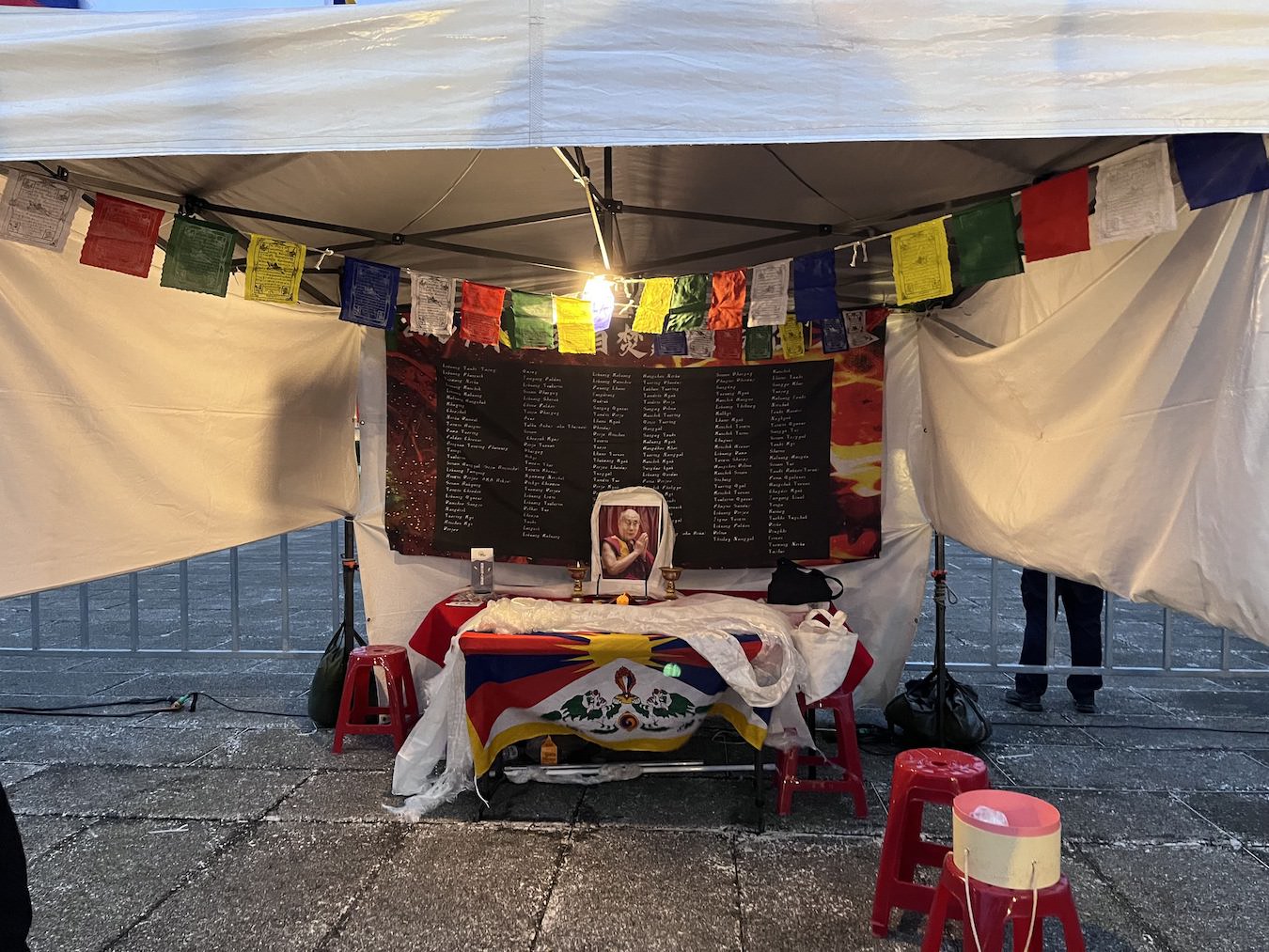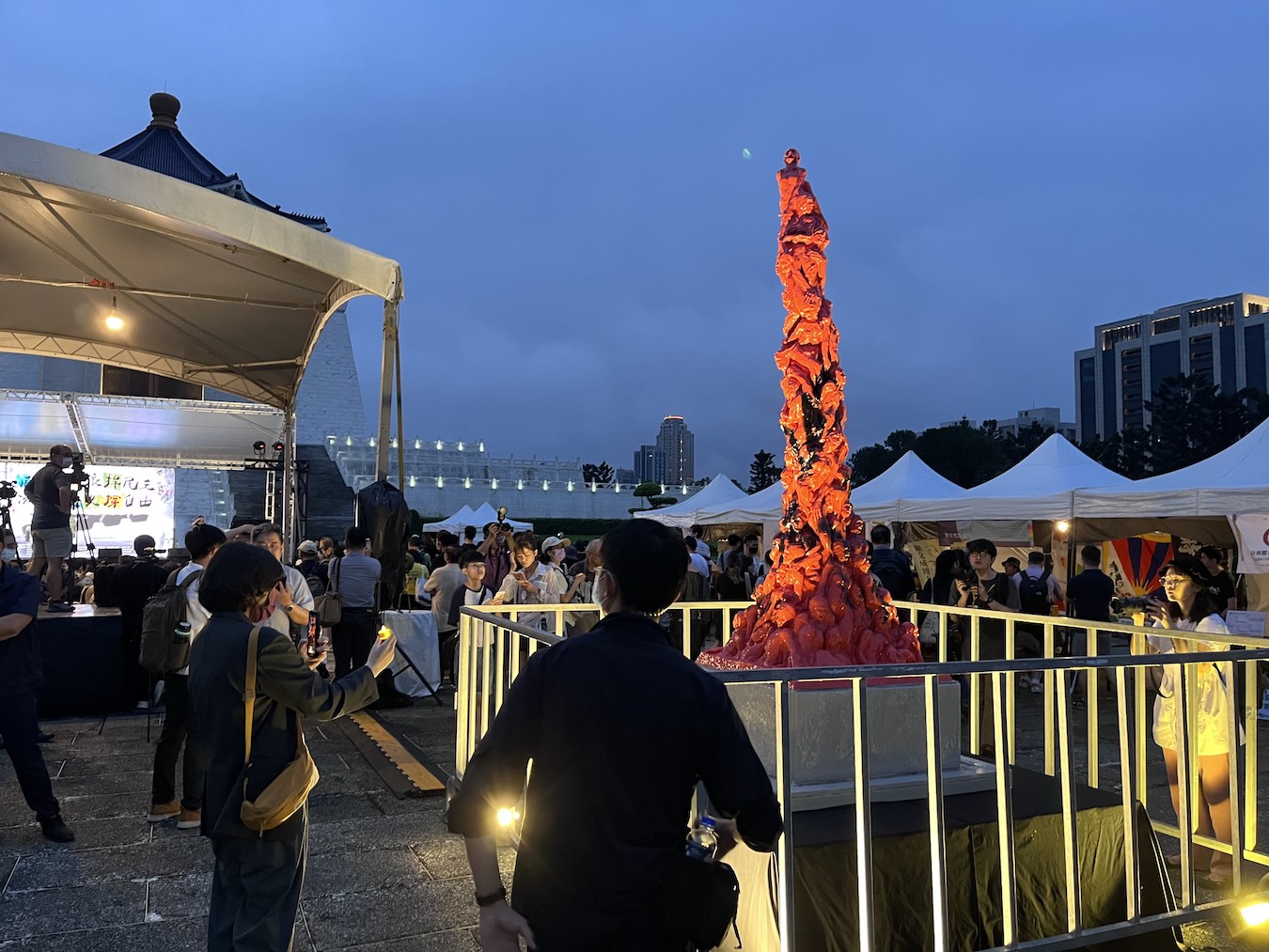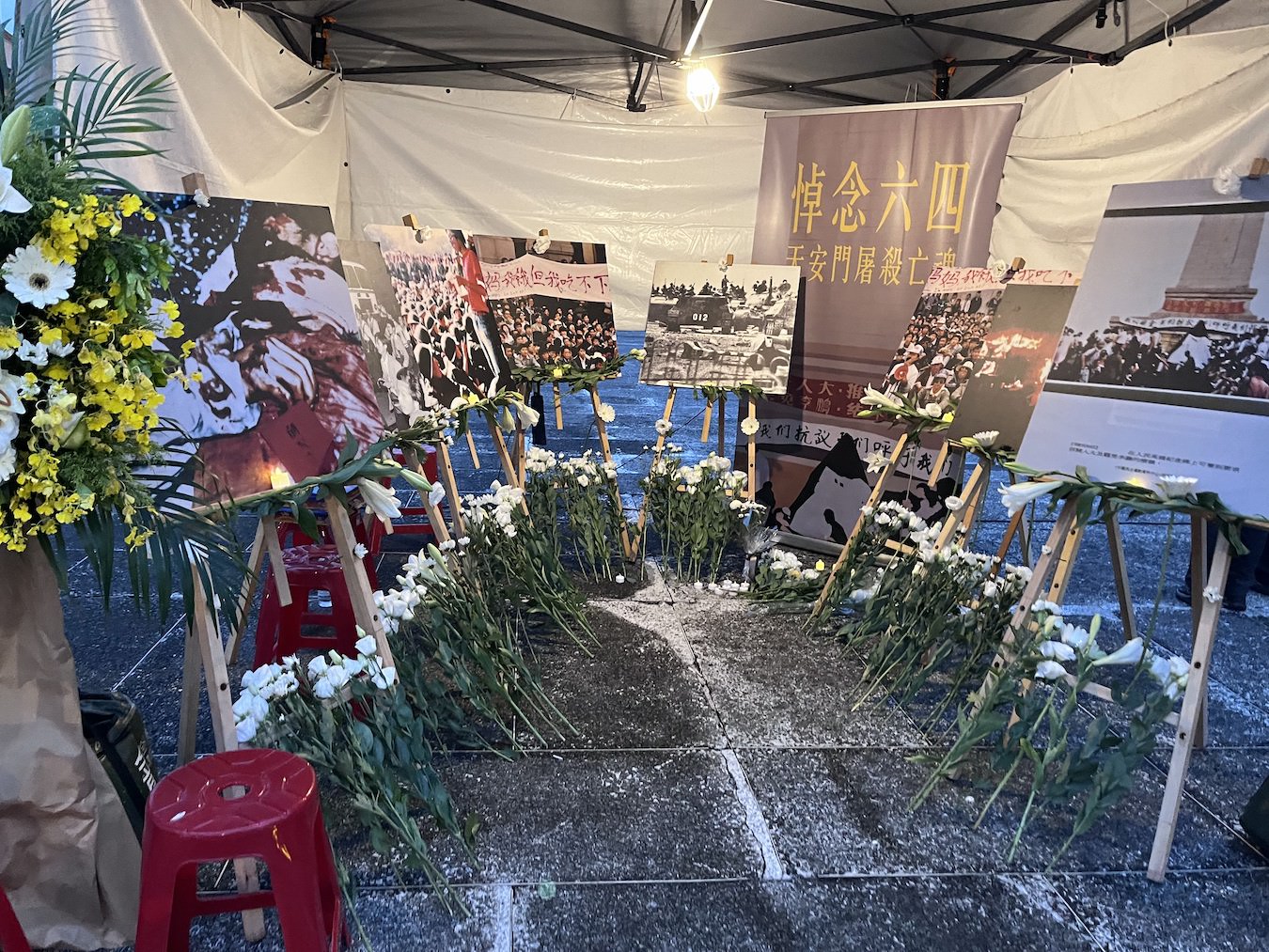by Brian Hioe
語言:
English
Photo Credit: Brian Hioe
TAIWANESE CIVIL SOCIETY groups demonstrated in Liberty Plaza tonight to commemorate the 34th anniversary of the Tiananmen Square Massacre. Several hundred were in attendance, despite bouts of rain. The event began at 10 AM and was larger in scale than commemorations in preceding years.
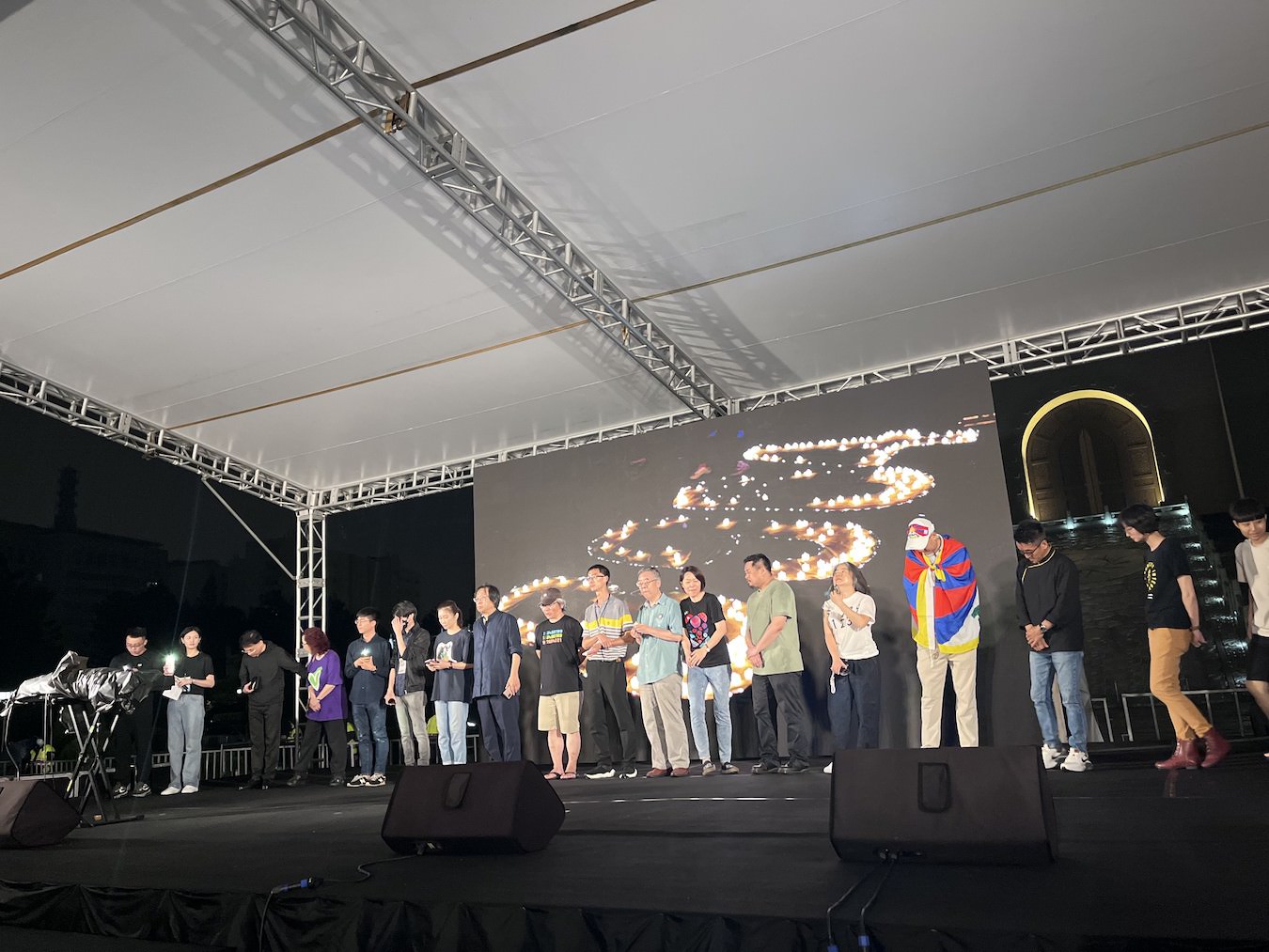 NGO representatives on stage during the vigil. Photo credit: Brian Hioe
NGO representatives on stage during the vigil. Photo credit: Brian Hioe
The Tiananmen Square Massacre is commemorated annually in Liberty Plaza, under the archway entrance to what is otherwise known as the Chiang Kai-Shek Memorial. This year, however, the commemoration was moved closer to the center of the plaza. Namely, the commemoration this year took the form of not only a vigil at night, but involved the screening of several documentaries on human rights in China as well as involved a “Democracy Market” tabling activity by a number of civil society groups, which began at 2 PM.
Three documentaries were screened. The first was the 2022 documentary Defender: Twenty Years of Human Rights Lawyers in China (辯護人-中國維權律師二十年), which was screened at 10 AM. This was followed by Super Citizen Ko (超級大國民), Wan Jen’s classic film about the White Terror at 2 PM, and finally by the recent Hong Kong documentary Blue Island (憂鬱之島), which reenacts Hong Kong history in light of the 2019 Anti-ELAB protests.
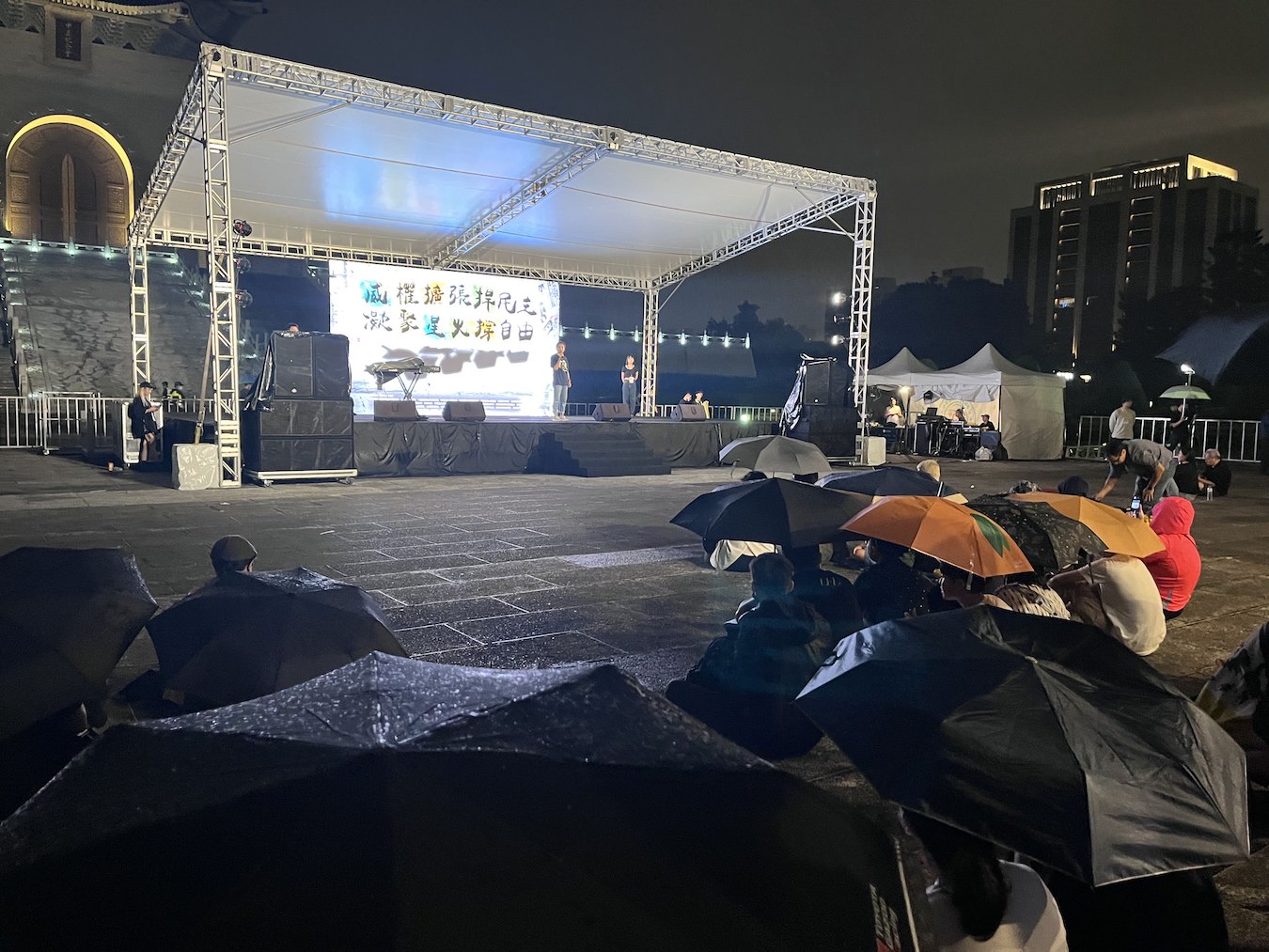 Photo credit: Brian Hioe
Photo credit: Brian Hioe
The vigil itself began at 6:40 PM. Around 8:08 PM, a 64-second moment of silence was held for the victims of the massacre, which was preceded by the event MCs reading off some of the names and stories of victims.
Shortly before 9 PM, a performance by a small chorus composed of White Terror victims or their descendants took place, singing “We Shall Overcome”, and several other songs. Before their performance, the members of the chorus criticized members of the KMT for attempting to pretend to care about the Tiananmen Square Massacre, while running Hou You-yi, the police official that presided over the series of events that led to Deng Nan-jung’s self-immolation, as their presidential candidate.
Portrait of the Dalai Lama, a 3D-printed replica of the Pillar of Shame, and memorials set up during the vigil. Photo credit: Brian Hioe
Among the speakers were a number of individuals who had experienced oppression at the hands of the CCP. This includes Zhou Fengsuo, a former student leader and survivor of Tiananmen Square, Hong Kong political artist Kacey Wong, who is currently living in exile in Taiwan, and Lee Ming-che, the Taiwanese human rights activist who was previously arrested by China for over five years. Wong’s video artwork, Rebel Hearts, was played at the start of the vigil.
Civil society groups that were present are those usually in attendance at the annual commemorations of the Tiananmen Square Massacre. This includes the New School for Democracy, the Taiwan Association for Civil Rights, Covenants Watch, Amnesty International Taiwan, Taiwan Labor Front, and others. Political parties that were represented included the DPP, as represented by Legislative Yuan president You Si-kun and legislator Hung Sun-han, as well as the NPP, represented by chair Claire Wang.
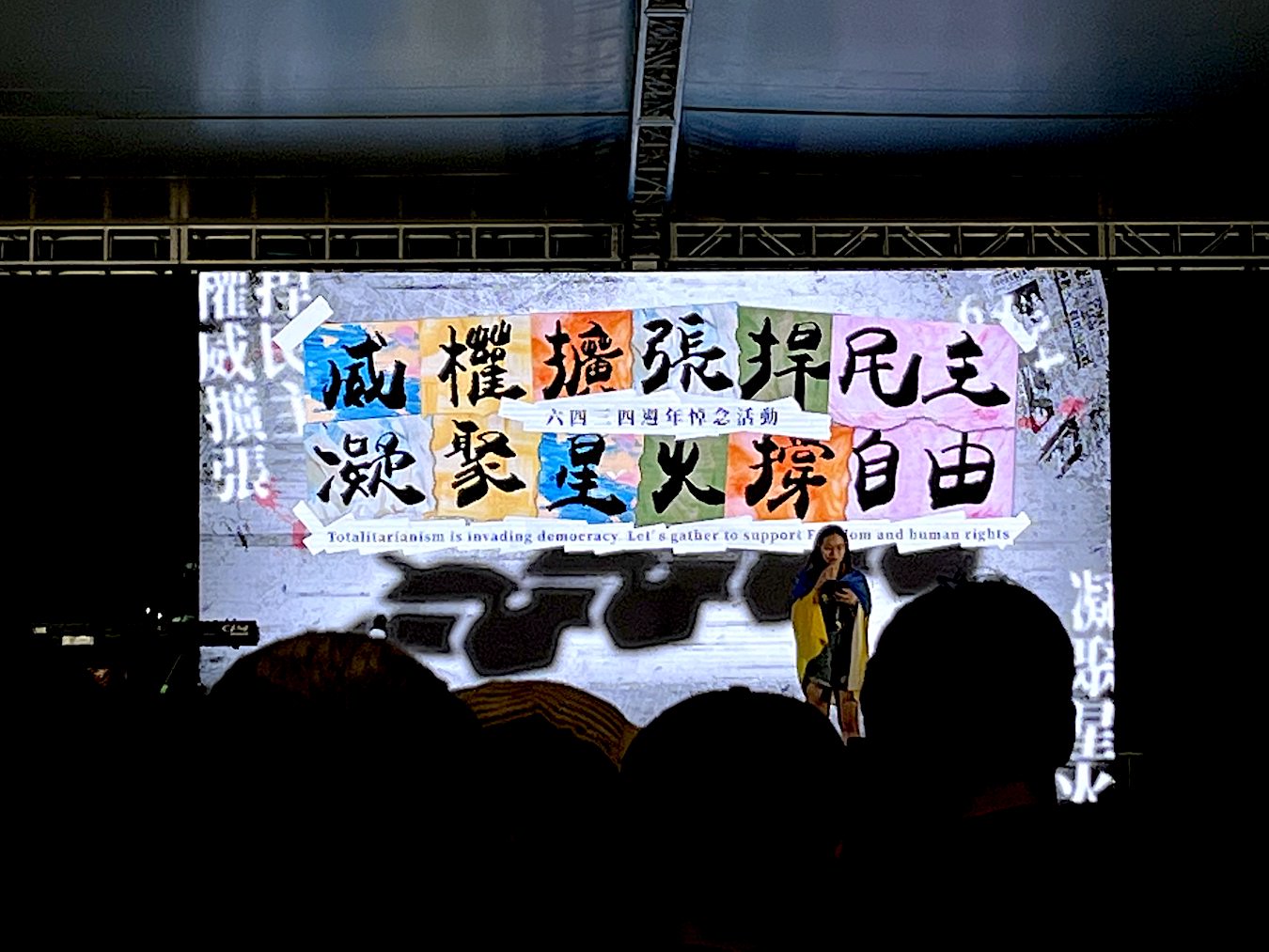 Comments by Aurora Chang of Taiwan Stands with Ukraine during the vigil. Photo credit: Brian Hioe
Comments by Aurora Chang of Taiwan Stands with Ukraine during the vigil. Photo credit: Brian Hioe
A section of the talks that took place was devoted to focusing on specific places affected by China. This included representatives of groups such as the Hong Kong Outlanders, Taiwan Stands with Ukraine, Campaign for Uyghurs, and Taiwan Tibet Human Rights Network, while Koko Thu spoke about the situation in Myanmar.
Apart from tabling by groups such as the Dr. Chen Wen-Chen Memorial Foundation and the Cosmopolitan Culture Action Taichung, a number of installations were set up at the site of the vigil and fair. A series of electronic candles reading “6489” were set up by Amnesty International Taiwan. Another booth featured a portrait of the Dalai Lama while still another booth featured Hong Kong protest art. A 3D-printed replica of the Pillar of Shame, which was previously set up in Hong Kong to commemorate the massacre but dismantled by the Hong Kong government in 2021, that was unveiled during last year’s commemoration was also present.
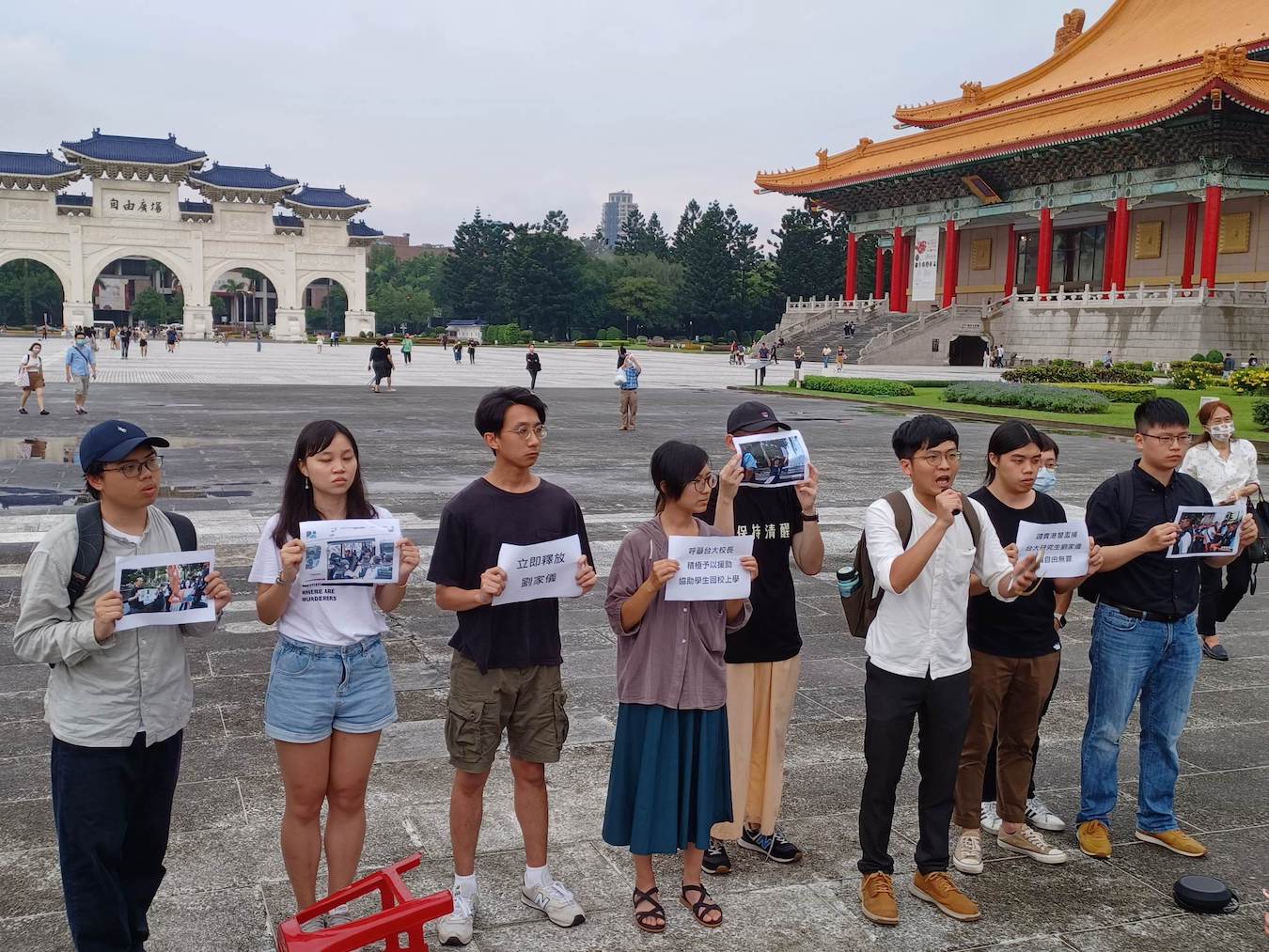 The press conference held by the National Taiwan University Graduate Student Association before the vigil. Photo credit: Daniel Yo-Ling
The press conference held by the National Taiwan University Graduate Student Association before the vigil. Photo credit: Daniel Yo-Ling
Speakers frequently touched on the deterioration of political freedoms in Hong Kong in past years, highlighting the arrests that had taken place in past days related to Tiananmen Square commemorations, involving artists, students, and others. Indeed, the vigil was preceded by a press conference held by the National Taiwan University Graduate Student Association calling attention to the arrest of three National Taiwan University students in Hong Kong for participating in such commemorations. Likewise, speakers highlighted how until the past few years, Victoria Park saw annual commemorations for Tiananmen Square that drew tens of thousands, but this year, one only saw a rally by pro-Beijing groups.
In his comments, Lee Ming-che highlighted how his imprisonment in China showed how the relationship between the authorities and the people there was one merely of the governed and governing, while Taiwan Association for Human Rights secretary-general Shih Yi-hsiang highlighted the arrest of Taiwan-based publisher Fucha in China. Fucha, or Li Yanhe, is a Chinese national who had naturalized to Taiwanese citizenship, and served the editor-in-chief of Gusa Press, which published books critical of the Chinese government. Shih called for members of the audience to join a petition calling for Fucha’s release.
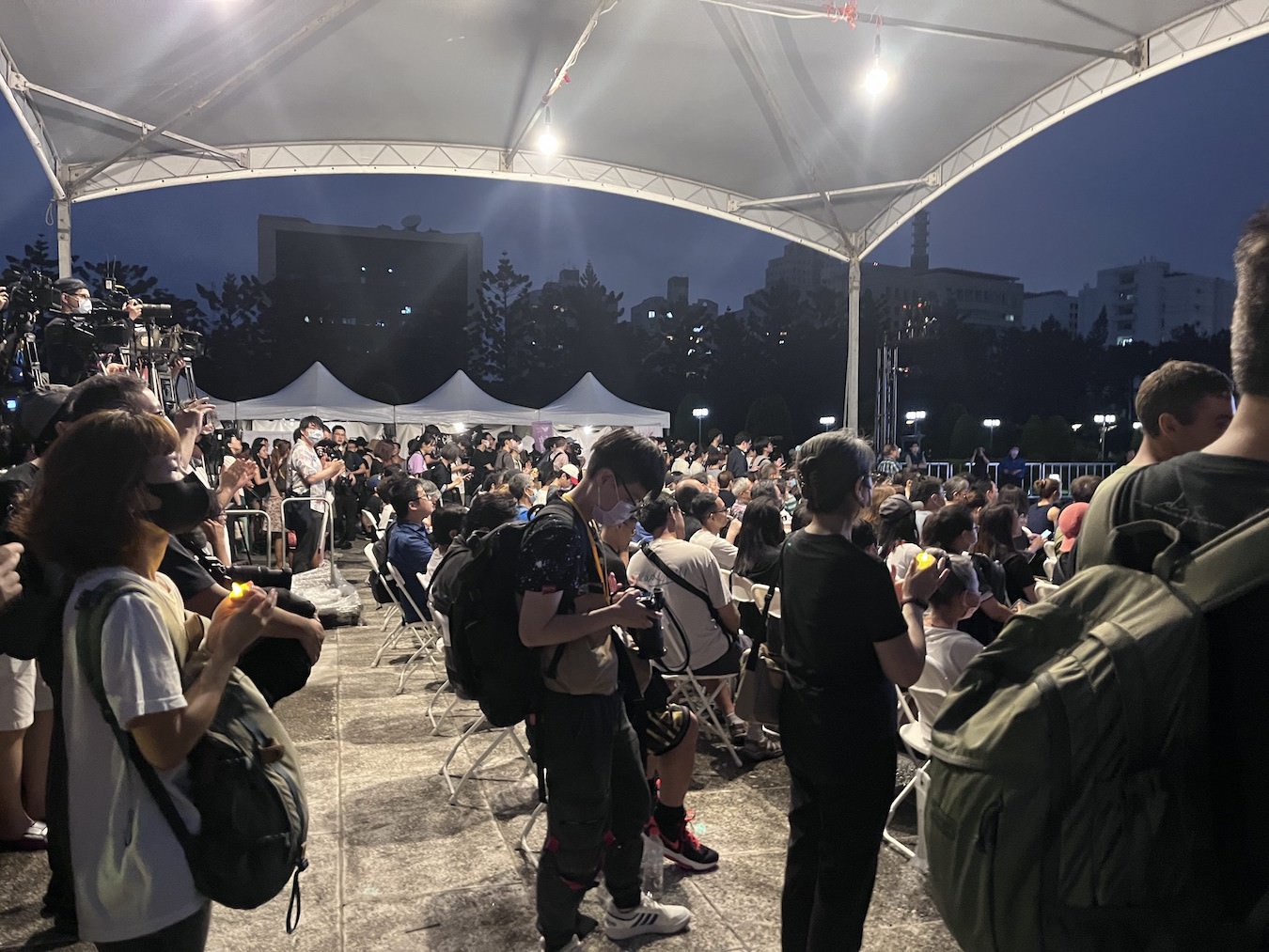 Photo credit: Brian Hioe
Photo credit: Brian Hioe
To this extent, speakers highlighted the plight of Tibetans, Uyghurs, and other groups targeted by the CCP. Speakers included Uyghur activist Rushan Abbas and Tibetan activist Tashi Tsering. As with previous years, a number of Hongkongers were visibly present at the Tiananmen Square commemorations in Taipei this year.
Prior to the anniversary, sexual assault accusations were raised against a number of prominent Chinese dissidents. This included Wang Dan, who had been a student leader during the Tiananmen Square, and Bei Ling, the Chinese dissident poet who originally publicized Fucha’s detention. This came up in Tiananmen Square commemorations in other parts of the world, but was not referred to directly during the event. The Me Too-style wave of accusations took place as part of a series of accusations against individuals part of the DPP, or framed as associated with them.
Tiananmen Square continues to be commemorated in Taiwan, then, 34 years on.


